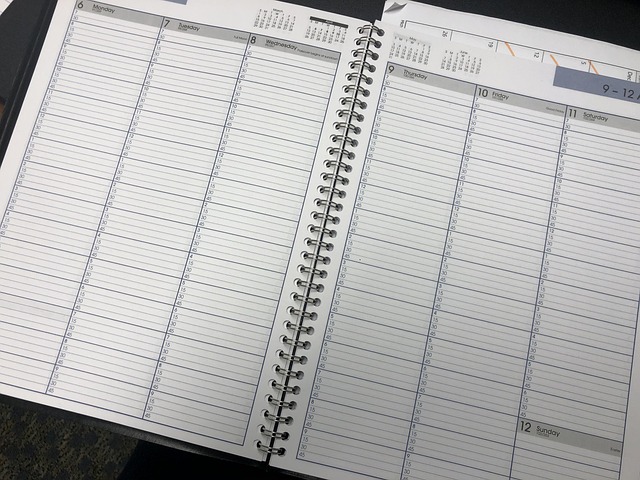In today’s fast-paced and demanding world, achieving a work-life balance can seem like an elusive goal. With work demands, personal responsibilities, and the constant pull of technology, it can be challenging to find time for self-care, relaxation, and meaningful connections with loved ones. However, finding a balance between work and personal life is essential for overall well-being and optimal health. In this blog post, we will explore the importance of work-life balance and provide practical tips for achieving it. We will discuss the benefits of setting boundaries, maintaining healthy relationships, managing stress, prioritizing personal time, and establishing clear priorities. By implementing these strategies, individuals can achieve a healthier, more fulfilling lifestyle and promote overall well-being. So, whether you are a busy professional, a parent, or simply looking to improve your quality of life, read on to learn how to achieve a healthy work-life balance.
Importance of Work-Life Balance

Work-life balance refers to the ability to effectively manage the demands of one’s professional life with those of their personal life. Achieving a work-life balance is important for maintaining overall health and well-being. When individuals do not have a balance between their work and personal life, they may experience physical and emotional stress, which can lead to health problems like anxiety, depression, and burnout.
Studies have shown that individuals who prioritise work-life balance experience higher levels of job satisfaction and are more productive at work. These individuals are also less likely to experience negative work-related outcomes, such as turnover, absenteeism, and reduced productivity. Additionally, individuals with a balanced lifestyle have more time to pursue personal interests, spend time with loved ones, and engage in leisure activities that promote happiness and well-being.
Therefore, achieving a work-life balance is essential for a healthy and fulfilling life. It can help individuals to reduce stress, maintain good physical and mental health, and increase overall satisfaction with their lives. By prioritising work-life balance, individuals can create a lifestyle that is fulfilling and sustainable, both in their personal and professional lives.
Identifying Priorities

Identifying priorities is an essential factor in achieving work-life balance. It involves determining what is most important in one’s personal and professional life and aligning one’s actions with those priorities. Identifying priorities requires a degree of self-reflection and the ability to differentiate between urgent and important tasks.
One way to identify priorities is to create a list of personal and professional goals. This can include short-term and long-term goals that reflect an individual’s values and interests. By creating a list of goals, individuals can evaluate which goals are most important and allocate time and resources accordingly. Another strategy is to use a time log to track daily activities and determine where time is being spent. This can help individuals identify time-wasting activities and prioritise those that are most important.
It is essential to set realistic goals and expectations when identifying priorities. Overcommitting to tasks can result in feeling overwhelmed and stressed, which can negatively impact health and well-being. Setting achievable goals and being honest about limitations can help individuals maintain a healthy work-life balance.
Overall, identifying priorities is essential for achieving work-life balance. It helps individuals focus their time and energy on the most important tasks and ensures that personal and professional goals align with their values and interests. By prioritising effectively, individuals can create a balanced lifestyle that promotes health and well-being.
Time Management Techniques

Time management techniques are crucial in achieving work-life balance. Effective time management involves the efficient use of time to complete tasks while also prioritising personal and professional responsibilities. Time management techniques can help individuals achieve their goals, maintain focus, and reduce stress.
One effective time management technique is scheduling. Scheduling involves allocating specific time slots for tasks and activities. By creating a schedule, individuals can identify what needs to be accomplished and plan their time accordingly. Scheduling can also help individuals maintain focus and avoid procrastination.
Another time management technique is delegating tasks. Delegating tasks involves assigning tasks to others to reduce workload and increase efficiency. Delegating tasks can help individuals free up time and energy to focus on more important tasks or personal responsibilities.
It is also important to take breaks and incorporate leisure activities into daily routines. This can help individuals recharge, reduce stress, and improve overall well-being. Breaks can include short breaks throughout the workday, regular exercise routines, and hobbies that promote relaxation and enjoyment.
Overall, time management techniques are essential for achieving work-life balance. By effectively managing time, individuals can reduce stress, maintain focus, and achieve personal and professional goals. Incorporating breaks and leisure activities can also promote overall well-being and improve quality of life.
Mindfulness and Self-Care

Mindfulness and self-care are critical factors in achieving work-life balance. Mindfulness refers to the practice of being present and aware in the current moment, without judgement. Practising mindfulness can help individuals reduce stress, improve focus, and increase overall well-being.
One way to practise mindfulness is through meditation. Meditation involves focusing on the present moment and slowing down the mind. Regular meditation practice can help individuals improve focus, reduce stress, and improve overall well-being. Mindfulness can also be practised through everyday activities, such as taking a mindful walk or practising mindful breathing.
Self-care is also an important factor in achieving work-life balance. Self-care involves taking care of one’s physical, emotional, and mental health needs. This can include regular exercise, healthy eating, and stress management techniques. Self-care also involves setting boundaries and saying no to commitments that may interfere with personal well-being.
Incorporating mindfulness and self-care practices into daily routines can help individuals achieve work-life balance. By practising mindfulness, individuals can reduce stress and improve overall well-being, which can help them maintain focus and productivity in both personal and professional endeavours. Self-care practices can also help individuals take care of themselves and create a balanced lifestyle that promotes health and well-being.
Overall, mindfulness and self-care are critical factors in achieving work-life balance. By incorporating these practices into daily routines, individuals can maintain a healthy work-life balance, reduce stress, and improve overall well-being.
Communication and Boundaries

Setting boundaries is a crucial factor in achieving work-life balance. Boundaries refer to limits that individuals set for themselves and others in terms of time, energy, and resources. Setting boundaries can help individuals manage expectations, reduce stress, and improve overall well-being.
One way to set boundaries is by creating a work schedule and sticking to it. This can include setting specific work hours and avoiding working outside of those hours unless it is absolutely necessary. By setting work hours and sticking to them, individuals can create a clear separation between work and personal time.
Another way to set boundaries is by establishing clear communication with colleagues and loved ones about expectations and limitations. This can include communicating personal responsibilities and limitations with colleagues and setting expectations with loved ones about personal time and commitments. By establishing clear communication, individuals can manage expectations and reduce stress related to conflicts between personal and professional responsibilities.
It is also important to learn to say no to commitments that may interfere with personal well-being. By saying no to commitments that are not aligned with personal priorities, individuals can avoid overcommitting and reduce stress related to a heavy workload.
Overall, setting boundaries is an important factor in achieving work-life balance. By setting clear limits and communicating expectations, individuals can manage stress, prioritise personal and professional responsibilities, and achieve a healthy work-life balance.
Maintaining Healthy Relationships

Maintaining healthy relationships is an essential factor in achieving work-life balance. Relationships with colleagues, friends, and loved ones can have a significant impact on an individual’s well-being and overall quality of life. Building and maintaining positive relationships can help individuals manage stress, improve mental health, and promote overall well-being.
One way to maintain healthy relationships is by prioritising communication. Communication involves listening actively, expressing oneself clearly, and being honest about personal feelings and needs. By prioritising communication, individuals can build stronger relationships, manage conflicts effectively, and reduce stress related to miscommunication.
Another way to maintain healthy relationships is by prioritising quality time with loved ones. This can include scheduling regular activities or spending quality time with friends and family members. By prioritising quality time, individuals can strengthen relationships and promote overall well-being.
It is also important to build positive relationships with colleagues and create a supportive work environment. Building positive relationships with colleagues can help individuals manage stress, increase job satisfaction, and promote a healthy work-life balance. This can involve collaborating on projects, providing support and encouragement, and creating a positive work culture.
Overall, maintaining healthy relationships is a crucial factor in achieving work-life balance. By prioritising communication, quality time with loved ones, and positive relationships with colleagues, individuals can improve overall well-being, manage stress, and achieve a balanced lifestyle.
Managing Stress

Managing stress is a critical factor in achieving work-life balance. Stress is a natural response to challenging situations, but excessive stress can have negative effects on an individual’s well-being and ability to manage personal and professional responsibilities. Managing stress can help individuals maintain focus, reduce anxiety, and improve overall well-being.
One way to manage stress is by identifying sources of stress and developing coping strategies. This can involve identifying stress triggers, such as work deadlines or personal commitments, and developing coping strategies, such as mindfulness meditation or physical exercise. By developing effective coping strategies, individuals can manage stress and reduce its negative effects.
Another way to manage stress is by prioritising self-care. Self-care involves taking care of one’s physical, emotional, and mental health needs. This can include regular exercise, healthy eating, and stress management techniques such as meditation or breathing exercises. By prioritising self-care, individuals can reduce stress and improve overall well-being.
It is also important to develop a support system to manage stress. This can involve reaching out to friends, family members, or colleagues for support during challenging times. A support system can provide emotional support, advice, and encouragement to help individuals manage stress and maintain focus.
Overall, managing stress is an important factor in achieving work-life balance. By identifying sources of stress, developing coping strategies, prioritising self-care, and building a support system, individuals can reduce stress, improve overall well-being, and achieve a balanced lifestyle.
Achieving a Work-Life Balance
In conclusion, achieving a work-life balance is critical for promoting overall well-being and optimal health. By setting boundaries, maintaining healthy relationships, managing stress, prioritising personal time, and establishing clear priorities, individuals can achieve a healthier, more fulfilling lifestyle. It may take some effort and conscious planning, but the benefits of achieving a work-life balance are well worth it. By prioritising self-care, relaxation, and meaningful connections with loved ones, individuals can reduce stress, improve mental health, and achieve a sense of balance in their lives. So, whether you are a busy professional, a parent, or simply looking to improve your quality of life, implementing these strategies can help you achieve a healthier, more fulfilling lifestyle. Remember, taking care of yourself is the first step towards achieving a balanced and fulfilling life.
Read More
- Testolan Supplement – Male Testosterone Management
- The Role of Genetics in Obesity: Myths and Realities
- How Maintaining a Healthy Mindset Improves Your Life
- 3 Surprising Sources of Protein, Fibre, and Essential Vitamins
- Self-Care Health: Why Taking Care of Yourself is So Important
Disclaimer: The information provided on Healthy Lifestyles for All is intended for general educational purposes only and should not be considered as medical advice. Please consult with your GP or other health professional before making any significant changes to your diet, exercise routine, or any other aspect of your lifestyle. We are not responsible for any adverse effects or consequences resulting from the use of the information provided on our blog.
Comments: I hope you enjoyed reading this post as much as I enjoyed writing it. If you liked it, please leave a comment. If you didn’t like it, disagree with something I have written (I’m okay with that), or think I got something wrong (that’s okay too), please leave a comment as well. We only truly learn from our mistakes, so I am happy to have mine pointed out.
Affiliate Links: Please also note that I may make a small amount of money if you buy one of the products I recommend in any of my blog posts. Rest assured that I have done my own due diligence, and only recommend products that have been tried and tested, and have extremely good feedback. Additionally, many of the products I recommend have 30 or 60-day money-back guarantees, so you can buy in the confidence that if a particular product is not right for you, you can get a refund.

